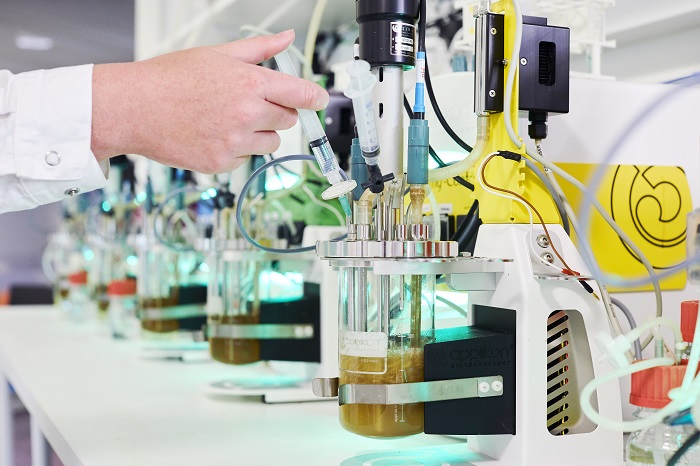Biotech
Wacker and Biosyntia to develop production process for sustainable biotin
The long-term partnership aims to make fermentation-based biotin available for the full range of relevant applications as a sustainable, non-chemical, European-sourced alternative
- By IPP Bureau
| January 11, 2022
Danish biotech company Biosyntia and the Munich-based WACKER Group today announced the signing of a contract to develop a large-scale production process for fermentation-based biotin. The long-term partnership aims to make fermentation-based biotin available for the full range of relevant applications as a sustainable, non-chemical, European-sourced alternative.
Biotin, also known as vitamin B7, is a coenzyme for the metabolism of proteins, fats and carbohydrates. The European Food Safety Authority (EFSA) attributes health-promoting effects, so-called health claims, to biotin. Seven health claims have been defined. For example, biotin contributes to normal functioning of the nervous system and macronutrient metabolisms as well as to the maintenance of normal skin and hair. Demand for biotin, which is also used as a dietary supplement, is rising sharply – driven by the megatrends health and well-being. A recent study predicts growth of around 10 percent per year in the coming years. In 2026, the global biotin market is expected to reach a volume of 376 million US dollars. The biotin currently available on the market is synthetically produced from non-renewable petrochemicals.
WACKER and Biosyntia will jointly develop a large-scale biotin production process based on sustainable fermentation. The companies are dedicating considerable R&D resources in a multi-year program, which will build on Biosyntia’s world-leading biotin technology. Only plant-based raw materials will be used in fermentative production. "Demand for more natural products is increasing – and with it the need for companies to use ingredients that are sustainable. Producing active ingredients from advanced fermentation is the future of production," says Martin Plambech, CEO of Biosyntia.
Biotin has a wide range of applications in food & beverages, infant nutrition, nutraceuticals, pet food, animal feed, pharmaceuticals and cosmetics. "With fermentation-based biotin, we want to offer customers a non-chemical, sustainable alternative that is produced in Europe," says Susanne Leonhartsberger, President of WACKER BIOSOLUTIONS, WACKER's life science division.

